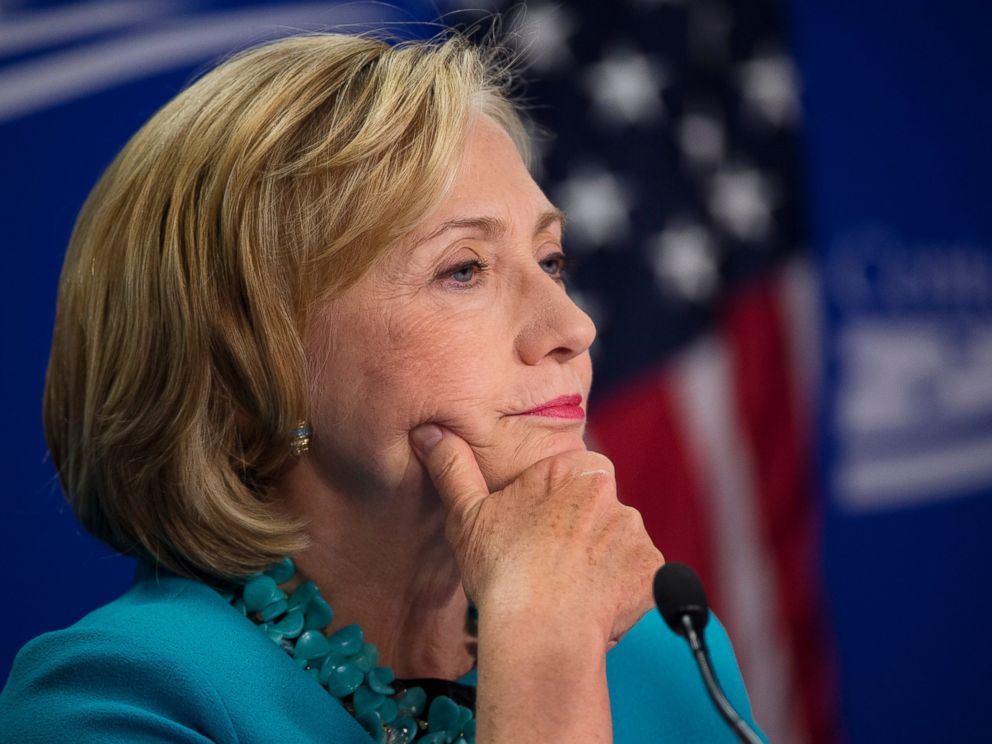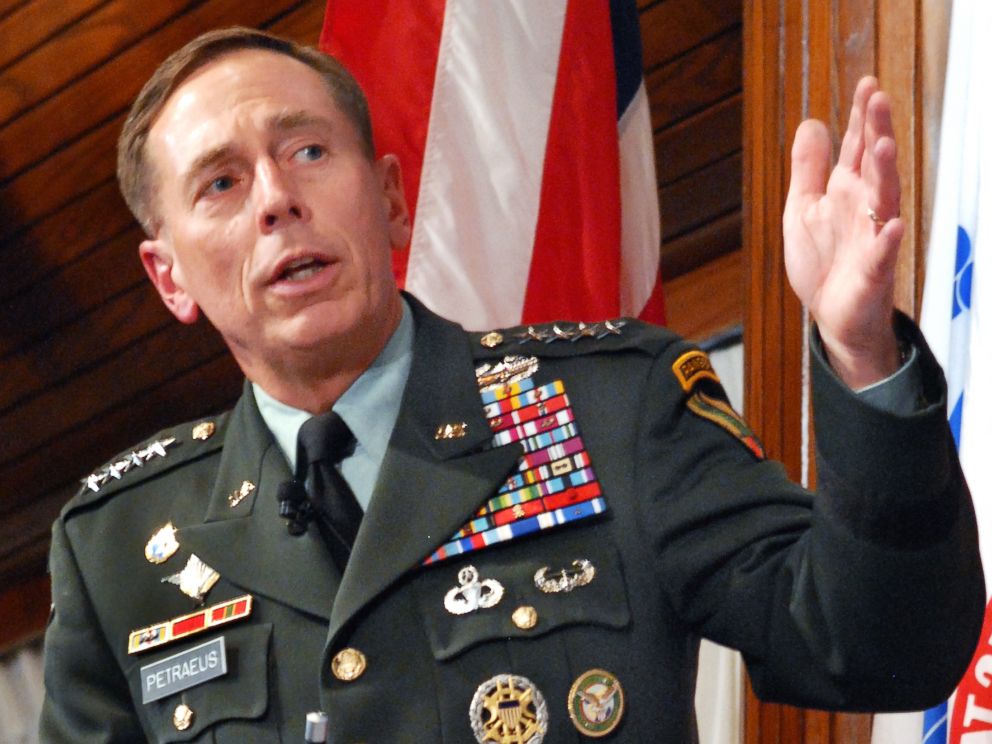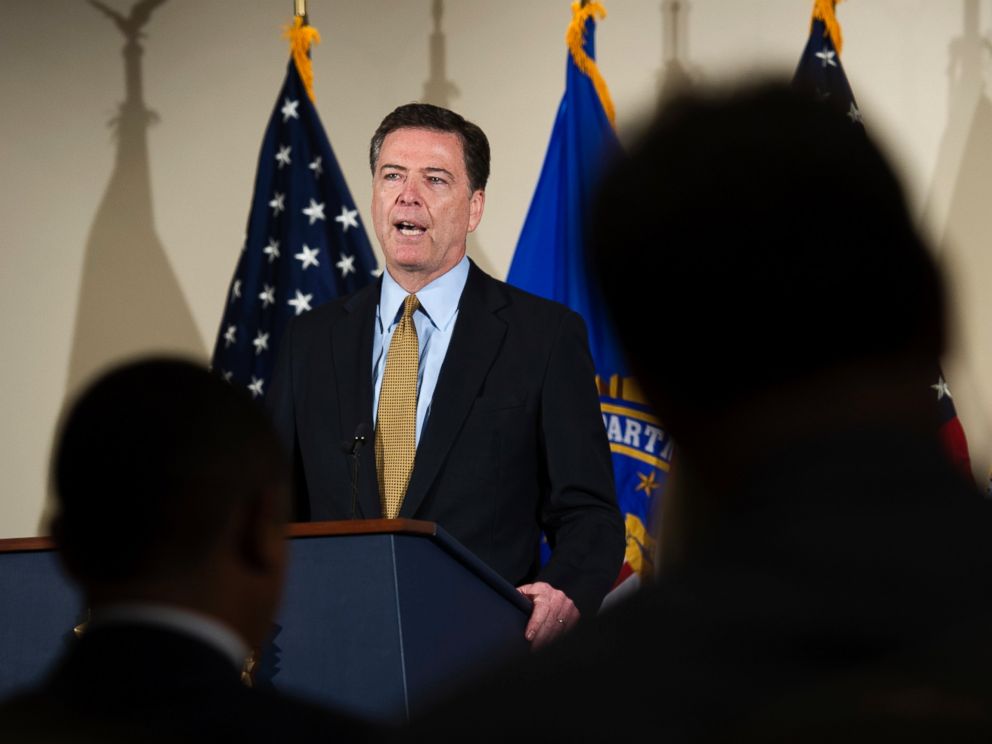by Mike Levine
ABC News
Democratic presidential nominee Hillary Clinton maintained this weekend that FBI Director James Comey concluded she had been “truthful” in public statements about her use of a private email server as secretary of state. But is that really what Comey said?
Here is a comprehensive summary of Comey’s remarks — under oath before the House Oversight and Government Reform Committee — about his agency’s findings and his decision not to recommend charges in the case. It’s a complete guide for any informed discussion citing Comey’s conclusions and comments.
Comey: Several Statements by Clinton Were False, but …
In testimony before the House panel on July 7, Comey described several statements made by Clinton on the campaign trail about her use of the server as “not true.”
Clinton was wrong when she said she never sent or received classified information over the server. “Our investigation found … 110 [emails with then-classified information] that she either received or sent,” he said.
But “a lot of what ended up on Secretary Clinton’s server … had been forwarded up the chain … and then she comment[ed] sometimes on it,” Comey told the House committee.
“In most circumstances, it initiated with aides starting the conversation,” he said. Only one conversation — consisting of several email chains — involved top-secret information, and “Secretary Clinton not only received but sent e-mails talking about the [top secret] subject.”
The Clinton campaign has not acknowledged that any of those 110 emails contained classified information, and in an interview Sunday, Clinton cited internal government disputes over what information was actually classified.
“She never believed these emails were classified,” and that was a “good faith” belief, since not one of the 110 emails was “marked at all” as classified, a Clinton campaign official told ABC News today. In addition, the email conversations were initiated by scores of State Department staffers, many of them career officials in the department, and Clinton was “not intentionally misleading in any way” with her statements on the campaign trail, the official said.
According to Comey, Clinton was also wrong when she claimed nothing marked “classified” was sent to or from her private account.
In fact, he said, three emails on Clinton’s server had a paragraph “summariz[ing] something” and included a C in parentheses at the beginning of it, indicating the paragraph contained information “classified at the confidential level, which is the lowest level of classification.”
But those paragraphs were “down in the body” of the emails, and “none of the emails had headers at the top of the document that said it’s classified,” Comey said. Because of the improper absence of such headers, it “would be … reasonable” for Clinton to think the emails did not contain classified information, or she may have missed the C markings buried in the tens of thousands of other emails exchanged, he acknowledged.
Even if she did notice the markings, “I think it’s possible — possible — that she didn’t understand what a C meant when she saw it in the body of the e-mail like that,” he said.
“I don’t think that our investigation established she was actually particularly sophisticated with respect to classified information and the levels and treatment,” he testified. “One of the things I learned in this case is that the secretary may not have been as [technically] sophisticated as people assumed.”
Clinton didn’t have a computer in her office at the State Department, Comey noted.
What’s more, according to Comey, the State Department has said some of those paragraphs shouldn’t have been marked with a C.
The Clinton campaign official reiterated that Clinton “honestly did not believe the materials were classified,” based on the absence of markings. In an interview with “Fox News Sunday,” Clinton said she “was communicating with over 300 people in my e-mailing … [and] they certainly did not believe and had no reason to believe that what they were sending was classified.”
Comey: Clinton Mishandled Classified Information but Did Not Break the Law
 ” />
” />“We went at this very hard to see if we could make a case,” but “my judgment is that she did not” break the law, Comey told the House panel.
According to Comey, there are two things that matter in a criminal investigation like this: Did the person being investigated mishandle classified information, and did the person know that what he or she was doing was illegal? “It takes mishandling it and criminal intent,” he said.
In Clinton’s case, the FBI did not find evidence “sufficient to establish” that she knew she was receiving or sending classified information and that it was against the law, Comey said.
“I think she was extremely careless. I think she was negligent. That I could establish. What we can’t establish is that she acted with the necessary criminal intent,” he insisted. “‘Should have known,’ ‘must have known,’ ‘had to know’ does not get you there. You have to prove beyond a reasonable doubt that they knew they were engaged in something that was unlawful.”
Comey said he knows that “frustrates people, but that’s the way the law is, and that’s the way the practice is in the Department of Justice.”
He said that as many as 20 agents, investigators, analysts and others within the FBI were assigned to the case and that they unanimously agreed charges were not warranted.
Comey: Clinton Should Not Be Prosecuted for ‘Gross Negligence,’ Even Though She Was ‘Extremely Careless’
“It’s a complicated matter,” Comey said of why Clinton could not be charged with violating a federal law that makes it a crime to exhibit gross negligence in handling classified information — regardless of intent.
The statute was passed in 1917, without a “great definition” for “gross negligence,” he said, and even then lawmakers had “a lot of concern … whether that was going to violate the American tradition of requiring that before you go and lock somebody up, you proved they knew they were doing something wrong.”
The Clinton campaign official reiterated that Clinton did not believe the materials she was handling were classified.
The Justice Department has brought charges under the law only once — in 2003, after it realized an FBI agent was having an 18-year affair with an FBI informant and sharing classified information and sensitive investigative details with her. The informant was a double agent and was passing that information to the Chinese government, creating “compromises within the [FBI’s] China program,” as a report by the Justice Department’s inspector general put it. Agent James J. Smith was charged with gross negligence in handling classified documents, and he ultimately pleaded guilty to a misdemeanor and was sentenced to three years of probation.
Nevertheless, Justice Department officials — through Republican and Democratic administrations — have long had “grave concerns” that the law is “invalid” and would be challenged on constitutional grounds if used to bring charges again, Comey insisted.
“For 99 years, they’ve been very worried about its constitutionality,” he said.
While some believe Clinton benefited from a double standard, Comey said, “You know what would be a double standard? If she were prosecuted for gross negligence.”
In determining whether to apply the statute for the second time since 1917, he said, “You have to decide, ‘Do I treat this person against that record? And if I do, is that a fair thing to do?’ … No reasonable prosecutor would do that. That would be celebrity hunting. That will be treating this person differently than John Doe.”
Comey: No Indictment Doesn’t Mean No Consequences
While Comey said there is no basis to indict Clinton for being “extremely careless” with classified information, he made clear that if she had been working for him, he might have fired her.
“It’s not fair to prosecute [such a] person on these facts,” but “just because someone’s not prosecuted for mishandling classified information, that doesn’t mean, if you work in the FBI, there aren’t consequences for it,” he said.
“They might get fired, they might lose their clearance, they might be suspended for 30 days,” or they might face some other “sort of discipline,” he said.
“So the notion that it’s either prosecute or you walk around … smiling all day long is just not true for those people who work for the government,” he insisted.
If those employees left government, though, there would be no way to discipline them, and they would “be in the same boat” as Clinton, who as a former secretary of state is not facing discipline for her actions, he said.
The Clinton campaign official said “present circumstances” — including her belief that the information was not classified, the absence of proper markings and the fact that many State Department officials initiated these conversations with her — should influence “how the case is viewed in terms of any administrative repercussions.”
Comey: Clinton Put Some of America’s Secrets in Danger but Didn’t Endanger Agents Abroad
Asked whether Clinton’s use of a personal server while secretary of state made some of America’s secrets vulnerable to adversaries, Comey simply replied, “Yes.”
The FBI found “no direct evidence of an intrusion” into Clinton’s server, but it did find evidence of “unsuccessful attempts,” and “it’s possible” skilled hackers breached the system without leaving any trace, he said.
“There is no doubt that [a breach] potentially would have exposed information … that was classified because it could damage the United States of America,” Comey added.
However, he dismissed suggestions that the classified information was so sensitive that it could put U.S. agents abroad at risk. “I don’t think I agree with that,” he said.
Comey: Clinton’s Case Is Not Like the Petraeus Case or Other Cases

“I just hope folks will take the time to understand the other cases, because there’s a lot of confusion out there about what the facts” are and why charges were brought in those cases but not in Clinton’s case, Comey said.
“The [David] Petraeus case, to my mind, illustrates perfectly the kind of cases the Department of Justice is willing to prosecute” and “illustrate[s] importantly the distinction” from Clinton’s case, Comey said.
In that case, Petraeus, a former CIA director and Army general, kept “vast quantities” of what he knew was highly classified information in eight notebooks hidden in his home, deliberately gave some of that material to his mistress and “lied about it” all to the FBI, Comey said.
“So you have obstruction of justice, you have intentional misconduct and a vast quantity of information. He admitted he knew that was the wrong thing to do,” Comey said, noting that Petraeus was ultimately prosecuted for a misdemeanor.
Similarly, Bryan Nishimura, a Naval reservist from California was recently prosecuted for a misdemeanor after he downloaded classified briefings and satellite images to personal devices while deployed in Afghanistan. He then took those devices back to his Folsom, California, home and copied the materials onto his personal computer system.
He pleaded guilty to mishandling classified materials and acknowledged that he knew he was restricted from downloading the classified materials to unclassified systems but “disregarded this restriction,” as his plea agreement with prosecutors put it.
Republicans cited the case during Comey’s testimony. But the FBI director said media reports of the prosecution don’t offer “a complete accounting of the facts in that case,” which “are very different” from the facts of the Clinton case.
Comey: Clinton Did Not Know Work-Related Emails Were Being Wiped
Clinton claimed that all work-related emails had been turned over to the State Department, but the FBI was able to recover thousands of work-related emails on her server that were not given to the department, Comey said.
When the State Department in late 2014 asked former secretaries of state to hand over any work-related emails the department may be missing, Clinton’s server had about 60,000 emails on it. Clinton’s lawyers deemed about 30,000 of those emails work related.
“[Clinton] then was asked by her lawyers at the end, ‘Do you want us to keep the personal emails?’ And she said, ‘I have no use for them anymore.’ It’s then that they issued the direction that the technical people delete them … [and] wipe them away,” Comey testified.
He said that the FBI investigation found that Clinton didn’t know her legal team had deleted those emails and that she didn’t know her lawyers had cleaned the devices in such a way to preclude forensic recovery. The goal was to delete just personal emails, but more than personal emails ended up being deleted, he said.
Comey: Final Decision Was ‘Not in Any Way’ Influenced by Politics

“The decision [not to recommend prosecution] was made, and the recommendation was made the way you would want it to be, by people who didn’t give a hoot about politics, who cared about what are the facts, what is the law and how similar people, all people, have been treated in the past,” said Comey, who was a registered Republican for most of his adult life but is now an independent.
The director insisted that the final outcome of the case “was steeped in no kind of bias” and that political considerations shaped his decision “not in any way.”
“I just want the American people to know we really did this the right way. You can disagree with us, but you cannot fairly say we did it in any kind of political way,” he said. “We don’t carry water for anybody.”
And if anyone has any evidence to the contrary, he said, “I’d love folks to show it me.”
Comey: My ‘Unusual’ Public Comments Were Warranted
Many have questioned why Comey held a news conference on July 5 to lay out so much of the FBI’s findings in a criminal investigation — especially in an investigation in which no charges would be filed.
Noting the “unusual” move, he told lawmakers he was trying to “offer transparency to the American people” because “it was very, very important for their confidence in the system of justice.”
“I care about the FBI’s reputation. I care about the Justice Department. I care about the whole system deeply,” he said. “And so I decided, I’m going to do something no director’s ever done before. I’m not going to tell the attorney general or anybody else what I’m going to say or even [when] I’m going to say it.”
He added, “I was very concerned that if I didn’t show that transparency, that in that lack of transparency people would say, ‘What is going on here? Something seems squirrely here.’ So I said I would do something unprecedented, because I think it is an unprecedented situation.”
Comey said it’s “essential that people see as much as they can so they can make their judgment,” even if they “conclude I’m an idiot and that I should reason different.”
He indicated that the FBI regularly makes recommendations to prosecutors based on the evidence it collects.
“Everything I did would have been done privately in the normal course,” he said, noting the final decision whether to prosecute rests with prosecutors in the Justice Department. Those prosecutors took the FBI’s recommendation and decided not to pursue charges against Clinton.
“I don’t have the power to decide prosecution, but I worked very hard to make sure that a righteous case was prosecuted,” Comey said.
In her interview on Sunday, Clinton said, “I take classification seriously,” repeating that she “made a mistake” in using a personal email server for work-related matters. “It is certainly not anything that I ever would do again,” she said.

